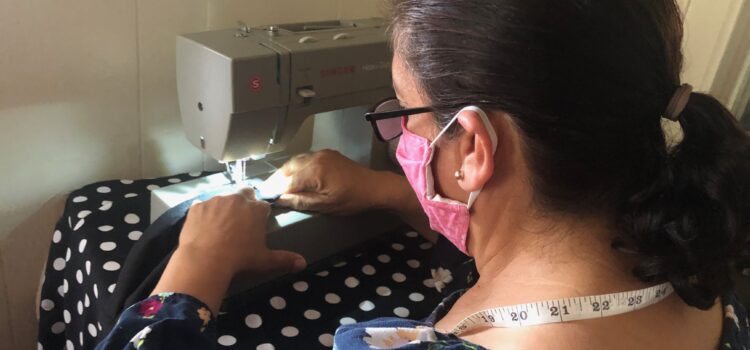
I have grown up watching my parents head to work in the harshest weather conditions year round just to bring food to the table for my family and I. My parents are undocumented. My parents are also farmworkers, and picking grapes is their only option for work.
My parents have worked in the fields for more than 20 years, and throughout all those years, they have never experienced something as devastating and frightening as the COVID-19 pandemic.
My mother told me, “We have seen what natural disasters around the world have caused, but nothing like this has ever happened here. We were not prepared for this, which has caused us to act like never before. We can’t see and hug our loved ones. The fear of being deported is still felt, and on top of that, we are fearing for our safety due to the pandemic.”
Despite my mother’s heightened fear of being deported, the government still relies on her work every single day, especially during this pandemic. The U.S. Department of Homeland Security considers those who work in the food supply industry as essential workers and “have a special responsibility” to maintain their normal work schedule.
It’s ironic that undocumented farm workers went from being “illegal” to suddenly “essential.”
Although workers like my mother are essential, they are still struggling through this pandemic.
My mother won’t receive a stimulus check from the Trump Administration because she isn’t the right kind of taxpayer. However, my mother does in fact pays taxes with an Individual Taxpayer Identification Number, but because she is undocumented, she won’t receive that extra bit of money that could help pay our bills and provide us food.
We aren’t the only ones being left out. This could’ve helped hundreds of families across America, as undocumented immigrants are most vulnerable during this pandemic.
My mom got laid off from her job nearly a month ago. When something like this happens, people file for unemployment, but my parents also don’t qualify for unemployment funds.
I truly believe this is unjust.
As if undocumented farmworkers haven’t been affected enough, the new proposal by the Trump Administration to cut farmworker wages is just the icing on the cake. My dad is still working but this proposal has him and many other families worried.
Yes, there have been efforts to help families in this situation, like Governor Newsom’s moratorium, which gives people who cannot pay rent a 90-day extension after the state of emergency is lifted. But is this enough?
Let’s add up the math here, well subtract rather. Take away the stimulus check, and don’t forget to subtract the unemployment benefits and the cut to wages. It doesn’t take a math genius to figure families who can’t pay their rent now will likely not be able to pay their three months worth of rent when the state of emergency is lifted.
Thankfully, my mother has found a way to stay busy while helping her community. She has decided to use her sewing skills to provide masks for vulnerable populations. When the demand for masks skyrocketed last month, my mom began sewing day and night to provide masks for the community.
My mom just wants everyone to be safe. She doesn’t want people like my father, who risks his health every day at work, to compromise their safety due to not being able to afford it.
I see how tired my mother gets while making the masks. I wanted to help my mom’s burden, so I learned how to sew. Now while she rests, I keep making the masks.
Through all this chaos, I am creating some pretty great memories with my hardworking and essential mother. Some of my favorite memories of my mom have been seeing her sew clothes for my family. She has been sewing since she was young, and it’s pretty powerful to see how she is using her gift to help save lives during this tough time.
“Although sewing for hours is tiring, I know it will all be worth it as long as I know there is one more person with a mask every time I make one and my community and family is safe,” my mom has told me.
I know thousands of families across the country share my story. I just hope our voices will be loud enough to bring about justice for families like mine during this pandemic.
Kern Sol News is a youth-led journalism organization in Kern County. In their stories, reporters shine light on health and racial disparities in under-served communities across Kern. For more stories by South Kern Sol, head to southkernsol.org.